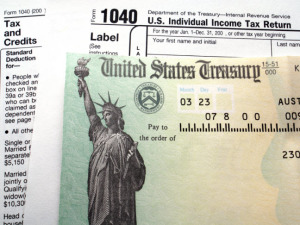 Today’s top story: Latino Credit Unions: Why They Matter, Where to Find One. Also in the news: When an airport lounge day pass is worth the splurge, helping your parents based on need instead of guilt, and why your money advisor should be a Fiduciary.
Today’s top story: Latino Credit Unions: Why They Matter, Where to Find One. Also in the news: When an airport lounge day pass is worth the splurge, helping your parents based on need instead of guilt, and why your money advisor should be a Fiduciary.
Latino Credit Unions: Why They Matter, Where to Find One
Taking care of the underserved.
When an Airport Lounge Day Pass Is Worth the Splurge
Saving your sanity.
Ask Brianna: Help Your Parents Based on Need, Not Your Guilt
Keeping emotions separate.
Make Sure Your Money Advisor is a ‘Fiduciary’
A critical qualifiication.
 Today’s top story: The IRS isn’t having any of these reasons not to pay taxes. Also in the news: What to buy (and skip) in April, how to shop for used clothes – and why you should, and 4 ways to use your health savings accounts to boost your bottom line.
Today’s top story: The IRS isn’t having any of these reasons not to pay taxes. Also in the news: What to buy (and skip) in April, how to shop for used clothes – and why you should, and 4 ways to use your health savings accounts to boost your bottom line.  Today’s top story: Don’t let technology bully you into tipping. Also in the news: 4 things that could make you the target of an audit, how lending a hand by co-signing a loan can backfire, and 7 smart ways to spend a $1,000 tax refund.
Today’s top story: Don’t let technology bully you into tipping. Also in the news: 4 things that could make you the target of an audit, how lending a hand by co-signing a loan can backfire, and 7 smart ways to spend a $1,000 tax refund. Today’s top story: How grads can get another shot at student loan forgiveness. Also in the news: Spring cleaning your credit cards, how to sidestep 3 unethical financial advisor tactics, and how to handle loaning money to your parents.
Today’s top story: How grads can get another shot at student loan forgiveness. Also in the news: Spring cleaning your credit cards, how to sidestep 3 unethical financial advisor tactics, and how to handle loaning money to your parents. Today’s top story: How to turn a tax refund into a fatter paycheck. Also in the news: 3 money lessons we can learn from ‘Roseanne,’ what to do when your tax pro botches your return, and how to set money goals with your spouse.
Today’s top story: How to turn a tax refund into a fatter paycheck. Also in the news: 3 money lessons we can learn from ‘Roseanne,’ what to do when your tax pro botches your return, and how to set money goals with your spouse.